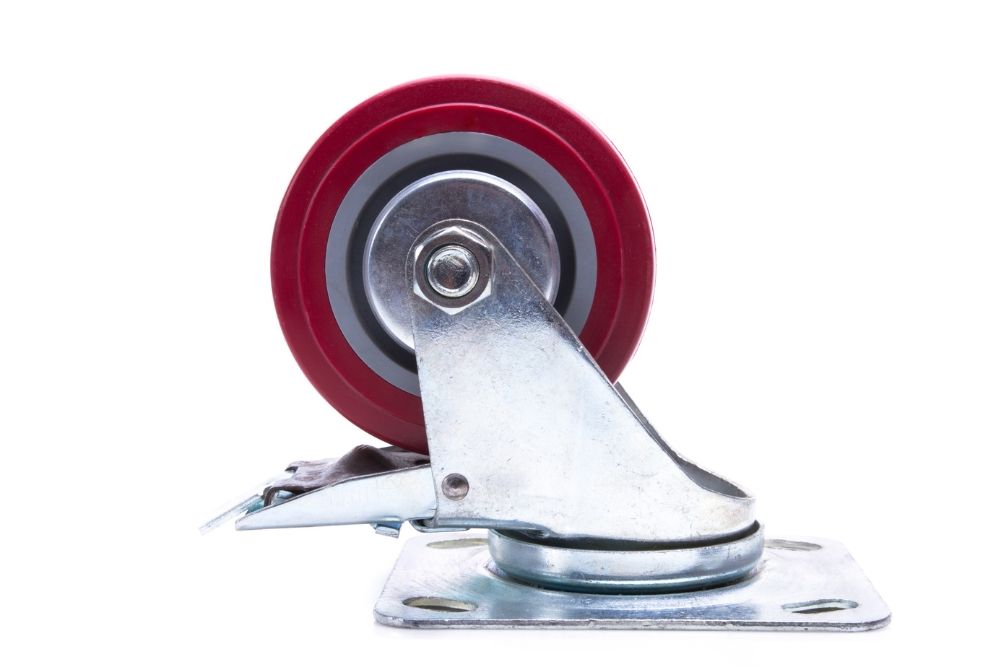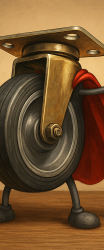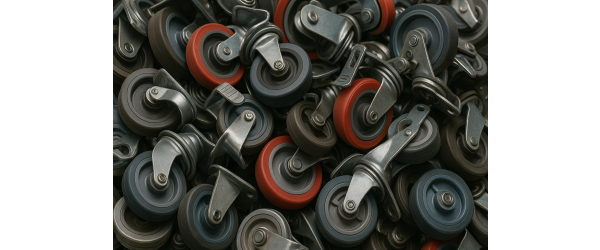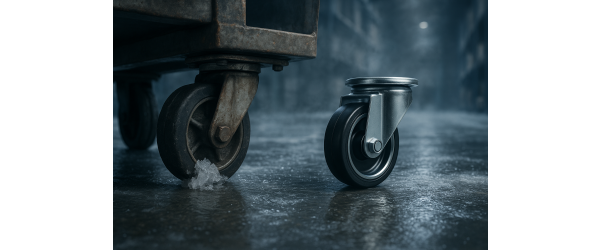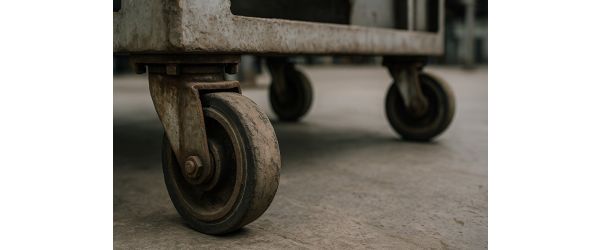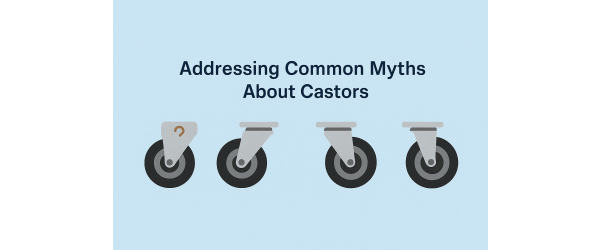Castor wheels are an integral part of many tools and equipment, from office chairs and trolleys to industrial machinery. Regular maintenance of castor wheels is key to ensuring smooth movement, safety, and long-term performance. Neglecting upkeep can lead to reduced efficiency, increased wear, and even costly replacements. In this blog, we’ll provide essential tips for effective castor wheel maintenance, helping you get the most out of your equipment.
1. Regular Cleaning to Prevent Build-Up
Dirt, debris, and grease can accumulate on castor wheels over time, hindering their movement and causing unnecessary wear.
Cleaning Tips:
- Use a damp cloth or sponge to wipe away dirt and grime.
- For tougher build-up, use a mild cleaning solution and a brush to scrub the wheels and axles.
- Avoid using harsh chemicals that could damage the wheel material or bearings.
Regular cleaning ensures that your castor wheels operate smoothly and remain in good condition.
2. Inspect Wheels and Bearings Frequently
Routine inspections are essential for identifying potential issues before they become major problems.
What to Check:
- Wheel Condition:
Look for cracks, flat spots, or uneven wear on the wheels. - Bearings:
Check that the bearings spin freely without resistance or noise. - Fasteners:
Ensure that bolts, nuts, or screws securing the castor wheels are tight and not loose.
By catching early signs of damage, you can prevent downtime and costly repairs.
3. Lubricate Moving Parts
Proper lubrication reduces friction and keeps castor wheels rolling effortlessly.
How to Lubricate:
- Apply a light lubricant or grease to the bearings and axles.
- Use a spray lubricant for hard-to-reach areas.
- Wipe away any excess lubricant to avoid attracting dirt.
Lubrication should be part of your regular castor wheel maintenance routine, particularly in high-use or industrial environments.
4. Ensure Proper Load Distribution
Overloading castor wheels can lead to premature wear, instability, and potential failure.
Tips for Load Management:
- Check the load capacity of your castor wheels and ensure they are not exceeding their limit.
- Distribute weight evenly across all wheels to reduce strain on individual components.
- Avoid sudden impacts, such as dropping heavy loads onto the wheels, which can damage the structure.
Maintaining appropriate loads extends the lifespan of your castor wheels and ensures safe operation.
5. Replace Worn or Damaged Wheels Promptly
Damaged castor wheels can compromise the functionality of your equipment and pose safety risks.
When to Replace:
- Wheels show significant wear, cracks, or deformation.
- Bearings are damaged or no longer spin freely.
- The wheel does not rotate or swivel as it should.
Replacing faulty components in a timely manner prevents further damage to your equipment and ensures consistent performance.
6. Adapt Maintenance to the Environment
Different environments can affect the performance and durability of castor wheels.
Environmental Considerations:
- Moisture:
In damp or wet conditions, use corrosion-resistant wheels and clean them frequently to prevent rust. - Chemicals:
If exposed to chemicals, choose wheels made of resistant materials and clean them regularly to avoid degradation. - Rough Surfaces:
For rough terrain, inspect the wheels more frequently for wear and tear caused by uneven surfaces.
Adapting your maintenance routine to suit the environment helps protect your castor wheels and keeps them in optimal condition.
7. Test Mobility and Stability
Periodically testing your castor wheels ensures that they remain functional and safe to use.
Testing Steps:
- Roll the equipment to check for smooth movement and stability.
- Swivel the wheels to ensure they rotate easily and without resistance.
- Listen for unusual noises, such as grinding or squeaking, which could indicate issues with bearings or alignment.
Regular testing helps identify minor issues before they develop into more significant problems.
Conclusion:
Effective castor wheel maintenance is crucial for ensuring smooth performance, prolonging the lifespan of your wheels, and maintaining safety. By following these tips — cleaning regularly, inspecting components, lubricating moving parts, and adapting to your environment — you can keep your castor wheels in excellent condition for years to come. For high-quality castor wheels and replacement parts, visit Castors Online
and explore our wide range of options.
